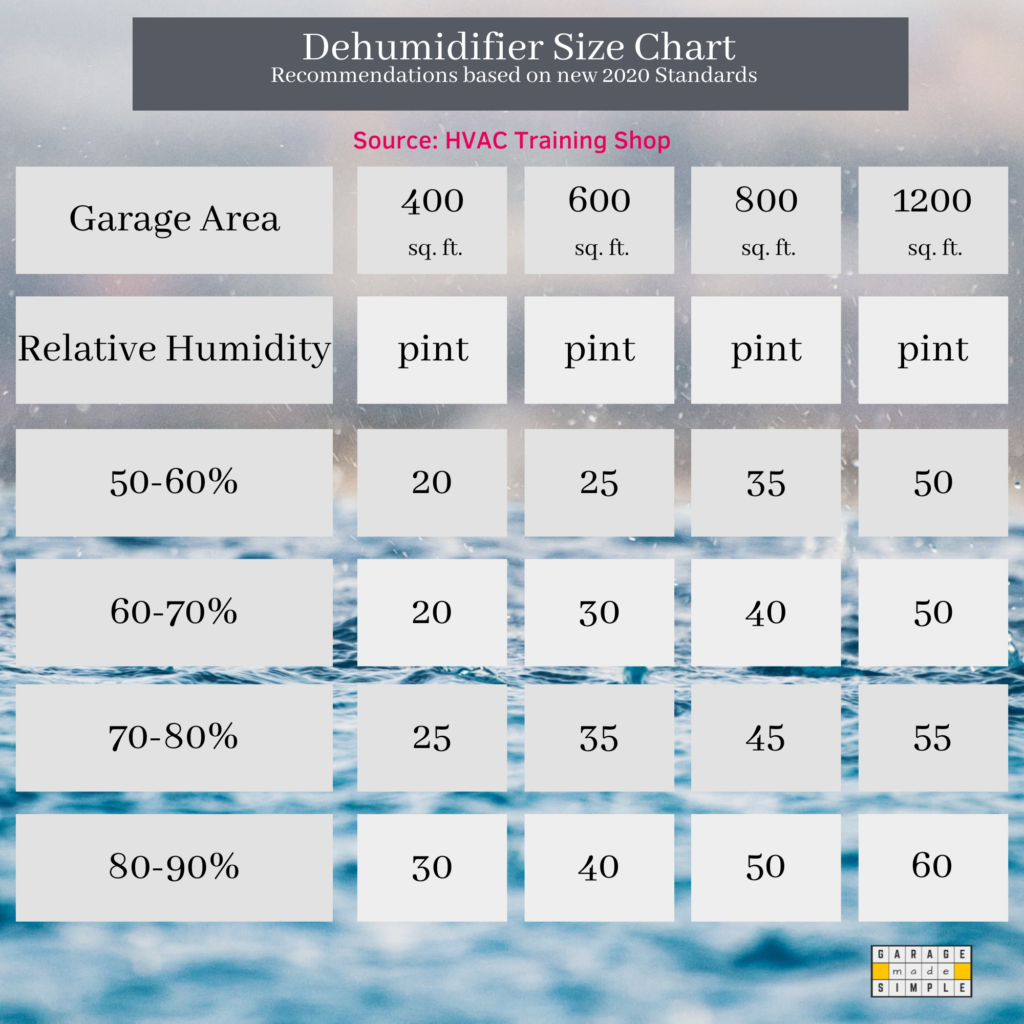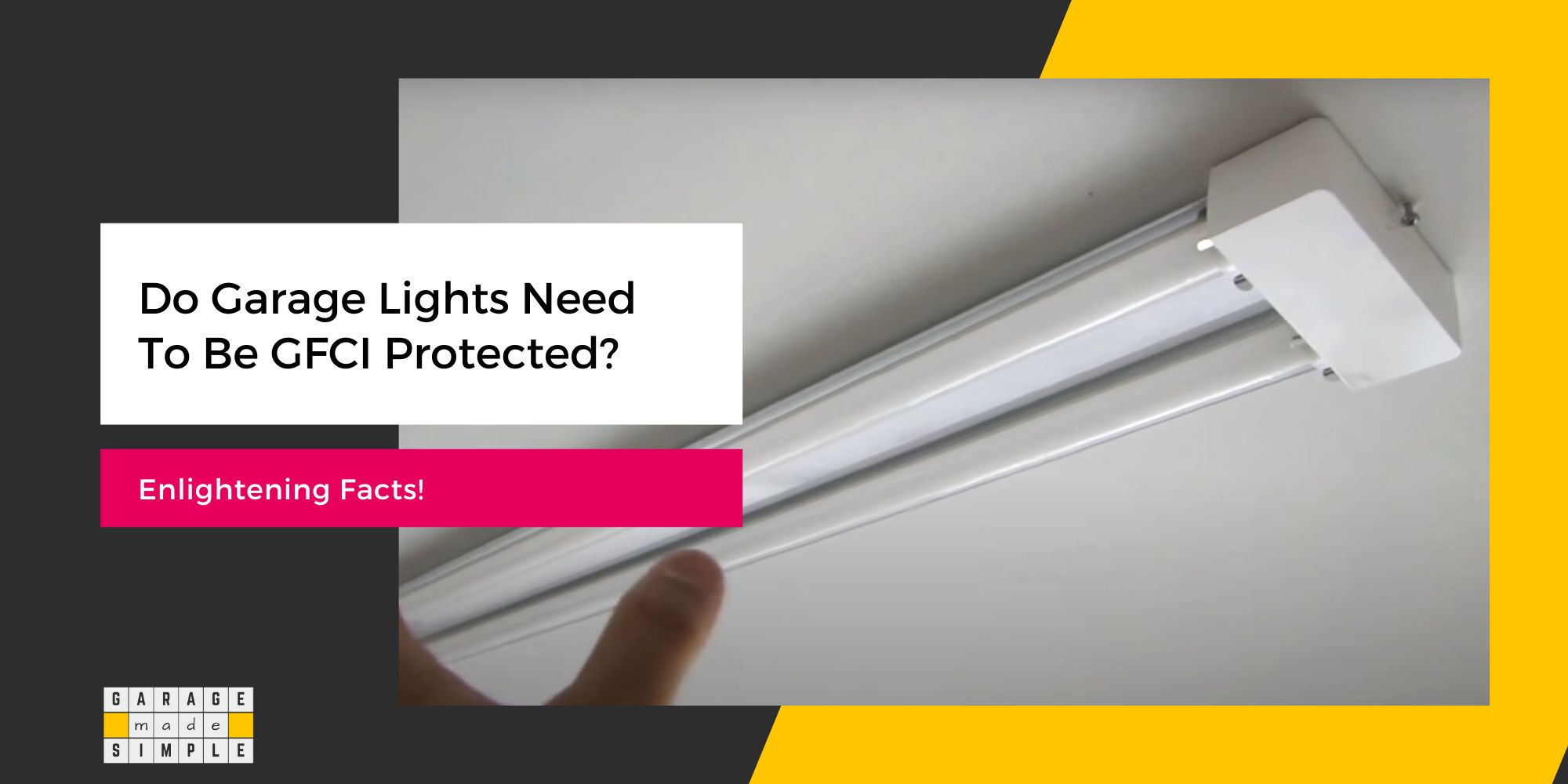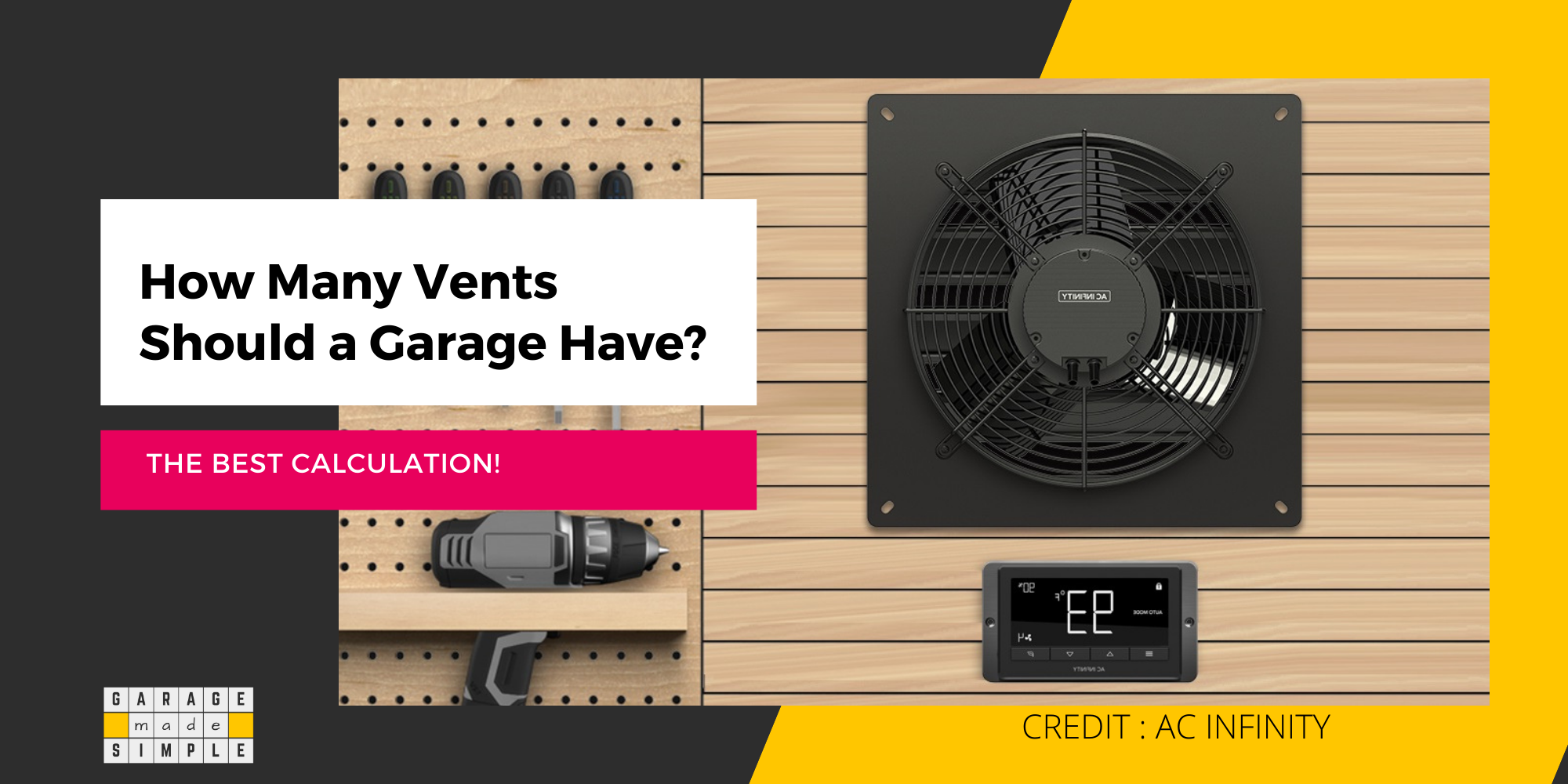Dehumidifier for Garage: Is It Really Worth the Money Spent?
garagemadesimple.com is a participant in the Amazon Services LLC Associates Program, an affiliate advertising program designed to provide a means for sites to earn advertising fees by advertising and linking to Amazon.com . The website is also an affiliate of a few other brands.
Should I Get a Dehumidifier for My Garage?
Is mold growth on your garage walls a recurring problem? Does your garage feel hot, stuffy and overbearing? Looks like the humidity in your garage is too high. You can easily check this with a digital hygrometer. How can you lower garage humidity? Should you get a dehumidifier for your garage?
A dehumidifier is the most effective way of lowering humidity in a garage. It does cost more than a fan or an exhaust fan. But a dehumidifier is effective even if the humidity outside is high.
This is the reason buying a dehumidifier for your garage is really worth the money spent!
High humidity in your garage is more than just uncomfortable. Mold growth on garage walls caused by high humidity looks ugly, smells musty and is a health hazard. High humidity encourages disease bearing pests to infest your garage.
But that is not all. High humidity makes your car components and garage tools rust much faster. If a garage dehumidifier increases the life of your expensive cars, is it not worth it?

A dehumidifier can ensure the ideal garage humidity level of 40 – 45% is maintained at all times.
How Does A Dehumidifier Work?
The most common type of dehumidifier uses a refrigerant and works in more or less the same way as a refrigerator or an air conditioner works.
A compressor is used to compress the refrigerant gas. When the gas is allowed to expand within the dehumidifier coil, it cools down considerably. High humidity air from the garage is passed over the cold dehumidifier coils.
When the moist air comes in contact with the cold dehumidifier coils, the moisture condenses, drips into a reservoir and can be eliminated.
A reheater heats the air with reduced humidity and returns it to the garage.
Another type of dehumidifier uses a desiccant material such as silica gel to absorb the moisture from the air with high humidity. A desiccant dehumidifier is more effective in really cold, freezing temperatures as condensation is not required.
Does an Exhaust Fan Dehumidify?
An exhaust fan does not dehumidify. It does not extract any moisture from the garage air.
A garage exhaust fan reduces humidity by removing the moist air out of the garage. Fresh air, with lower humidity is drawn in through the wall vents, to replace the exhausted air with high humidity.
NOTE: An exhaust fan will be unable to reduce the garage humidity, if the outside air is equally humid.
The additional advantage of using a garage exhaust fan is that it also eliminates fumes, odors & hot air. A garage exhaust fan improves both ventilation and air circulation.
Can a Fan Be Used as a Dehumidifier?
A fan does not dehumidify for the same reason that an exhaust fan does not dehumidify. It does not extract moisture from the air.
A fan increase air circulation within the garage. This is useful for drying out wet zones and cooling the garage.
An increase in wind speed over a wet surface increases the rate of water evaporation. A floor fan uses this principle to quickly dry out wet or damp garage floors. Airflow over the skin increases the rate of sweat evaporation making you feel cooler.
A fan only creates air circulation within the garage. Just by itself, a fan does not improve ventilation or air change in a garage.
What Size Dehumidifier for My Garage?
The dehumidifier size denoted in pints. So a 30 pint dehumidifier is rated to extract 30 pints of moisture per day in standard test conditions. The test conditions refer to temperature and relative humidity (RH).
The 2012 dehumidifier testing standard required tests to be done at 80° F and 60% Relative Humidity (RH). The new 2020 dehumidifier testing standard now requires tests to be done at 65° F and 60% Relative Humidity (RH).
The correct dehumidifier size is determined by
- Volume of air (related to garage area)
- Reduction in humidity required (related to normal humidity in the garage)
- Temperature (dehumidifier efficiency drops at lower temperatures)
Fortunately you do not have to do any detailed calculations. HVAC Training Shop has already prepared an easy to use chart.
I am presenting that data right here for your information and use.

How Much Does a Dehumidifier Cost?
The actual cost of a dehumidifier depends primarily on the size. For a specific size, the brand, model and special features, if any, will also affect the price. Typically you can expect to pay between $150-$200 for a good quality 30 pint dehumidifier.
GE is a well-known brand and I would highly recommend buying a 35 pint portable GE dehumidifier. It is perfect for a two car garage with humidity conditions classified as wet to extremely wet.
How Much Does It Cost to Run a Dehumidifier?
The wattage of the dehumidifier depends on its size. The wattage rating of most garage dehumidifiers is between 300 – 700 W. Depending on the electricity rate in your area, expect to pay between $0.03 – $0.16 per hour of run time (according to LearnMetrics).
The actual cost of running a dehumidifier depends on the run time, which in turn depends on the prevalent garage humidity level.
| Monthly Running Cost of a Garage Dehumidifier | ||
| Hours / Day | Lower of Range | Higher of Range |
| 2 Hours Per Day | $1.80 | $9.60 |
| 4 Hours Per Day | $3.60 | $19.20 |
| 8 Hours Per Day | $7.20 | $38.40 |
| 12 Hours Per Day | $10.80 | $57.60 |
| 16 Hours Per Day | $14.40 | $76.80 |
| 24 Hours Per Day | $21.60 | $115.20 |
Thank you very much for reading the post. I do hope you found it informative and useful.






